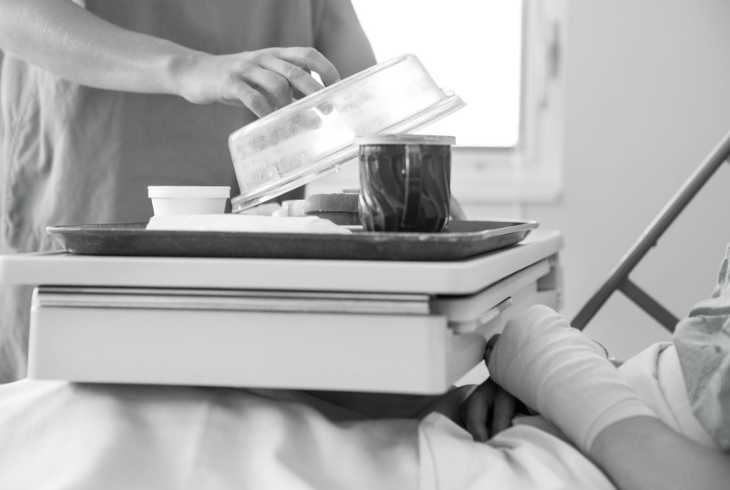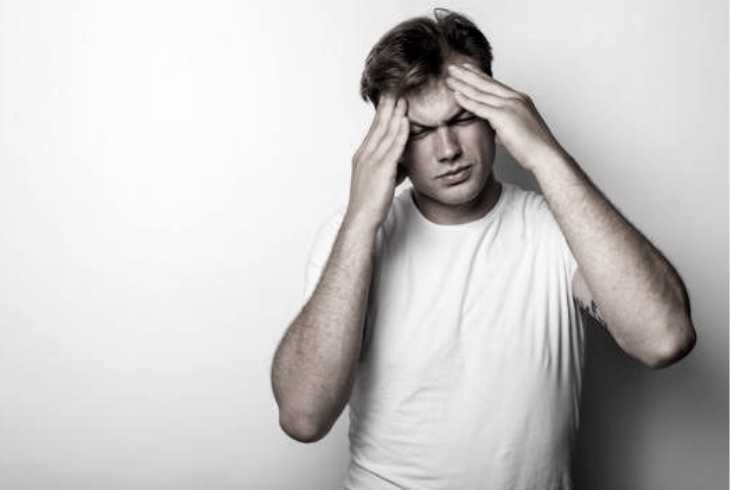Undergoing any form of surgery is a daunting experience. Moreover, you'll need to take meticulous care of your body after surgery. Especially the food and beverages you put into your body.
This leads us to coffee.
Our favorite majestic beverage. It keeps us going throughout the day and uplifts our mood in the worst of times. However, should we be avoiding coffee after surgery? Well, it's really a personal choice. Your doctor will tell you that it depends on the procedure you are having. But for most folks in the post-operative period, the benefits out weigh the risk.
If you are passionate coffee-drinker, and simply can't imagine waking up in the morning and not having your caffeine dose, there is no need to panic. Drinking coffee after surgery represents a slow therapeutic way towards a full recovery.
Seven Benefits of Coffee After Surgery

1. Helps with that woozy feeling
After surgery, your surgeon may not advise you to drink anything right away. Moreover, when you first wake up from the anesthesia, you won't be aware of yourself or where you are, much-less ask for a cup of coffee.
Most likely on the second day you will be carving a cuppa. But only with your nurses supervision and your surgeons okay, due to the medications you may be getting. The caffeine will help you fight off that nasty groggy feeling after surgery, hence you will immediately feel yourself again.But remember: this should only be done after you receive green light from your surgeon and under your nurses supervision, to avoid any further issues

2. Helps with post-operative headaches
A few days after your surgery, post-op headaches are going to be an ongoing problem. Not only will your wound and stitches hurt, but you will feel dizzy and completely irritated due to headaches.
Caffeine to the rescue.
Basically, if your regular morning routine includes drinking cold brew coffee, then the remedy for your post-operative headaches is to sip at least one cup. Some doctors really consider this as therapy. If you are treated with narcotics or Tylenol, your headache issue may be resolved faster, but it may not totally fade away.
There was a study that even showed folks who are used to consuming caffeine were more likely not to suffer from post-operative headaches if they had a cuppa the morning after surgery. For that reason, you should specify that your morning routine involves a cup of joe, and let the caffeine withdraw your headache.
3. Boost your alertness
Depending on the procedure, three or four hours after surgery you are advised to get up and try a few steps. Of course, if you have undergone a facelift procedure this won't be a problem.
Caffeine stimulates your body to be more agile after surgery. You many not feel like getting up, but the caffeine in your cup will make you more alert and might enable you to stand. Of course, it all may depend on where your incision is, but coffee will surely boost your alertness, making you feel more awake.

4. Helps prevent constipation after surgery
Depending on the type of procedure you have been submitted to, you are very likely to suffer from constipation. If being constipated is difficult enough when you are healthy, can you picture adding symptoms like cramps, back pain, heaviness and discomfort when you are already struggling with healing wounds, stitches and overall weakness from surgery?
Here's some common surgeries that cause constipation:
- Appendectomies
- Gastric-bypass surgeries
- Hysterectomies
- Bariatric surgeries
- Bowel surgeries
Constipation is a really nerve-racking feeling. However, if you drink coffee two hours after your surgery you shouldn't suffer that problem so much.
Scientists have proven that people who are being treated for medical surgery that had coffee, experienced their first bowel movement about 60 hours after surgery. Compared with 74 hours after surgery for patients who only drank water.
What is more, patients who drank caffeine also were able to pass gas five hours sooner. This is amazing information for all passionate coffee drinkers. Not only will you recuperate faster, but your favorite beverage will help you overcome annoying constipation and help you heal faster.

5. Fights off Depression
Stimulants in your coffee are responsible for elevating your mood. Therefore, we drink more coffee during the day to fight off tiredness, and to lift up our mood.
Little do people know, drinking coffee on a regular basis can actually help you fight off depression. This is very well-known in some ordinary situations, but this is extremely vital after surgery. During the post-operative time, you will feel down, agitated, and in pain. Which will result in feeling depressed and not being your normal self.
If you intake caffeine, your mood may not be lifted in an instant. However, studies have shown that patients who drink coffee after surgery reported feeling safe and at ease, without the mood swings.
When you drink coffee you feel awake and alert, therefore you will have more chance to get exposed to new things and possibly have your mind taken away from the sadness you may feel post-op.
6. Encourages Physical Activity
80% of people who undergo some form of surgery are generally physically inactive or they are advised not to engage in excessive physical movement.
However, other research says that physical activity will boost your post-operative process. Coffee has natural stimulants that will get you moving without you even wanting you to. Caffeine will re-energize you, make you feel more active, revived and give you the necessary stamina to get you up and running. Of course, not literally.
Caffeine and surgery go hand-in-hand when healing. A coffee thirty minutes before physical activity will actually help you burn more calories and your organism will naturally heal. Therefore, caffeine will not only aid in improving your general fitness level after surgery but it can also assist in total recovery.

7. Increases Blood Circulation
Even though caffeine is recommended to patients who are used to drinking this fabulous beverage, it's not suited for everyone in their after surgery period. Caffeine increases vasoconstriction and increases blood pressure, which is not good after surgery.
Furthermore, older folks with heart conditions or uneven heart rhythm problems, may want to avoid coffee after surgery. In this case, caffeine may cause your blood to clot and this is something that you don't want to happen after surgery.
Caffeine can also cause narrowing of blood vessels, which puts pressure on your blood circulation, and thus, causing high blood pressure. Unfortunately, when you have high blood pressure, you are more at risk for a heart attack or stroke after surgery.
Final Thoughts
It's wrong not to drink coffee after surgery since it doesn't have any major negative consequences. On the other hand, if you are not captivated by this beverage, or have a low tolerance to caffeine than drinking coffee will not feel right and may even cause nausea.
You should consume coffee in moderation even if you are a keen coffee-lover. Coffee is a stimulant, but too much of a good thing, could result in you hurting yourself after surgery. A cup of coffee a day will yield the best results possible.
About the Author: Fiona Adams is a freelance lifestyle writer inspired by traveling and a colorful world around her. Different cultures, people and food make her want to stay on the road forever.




